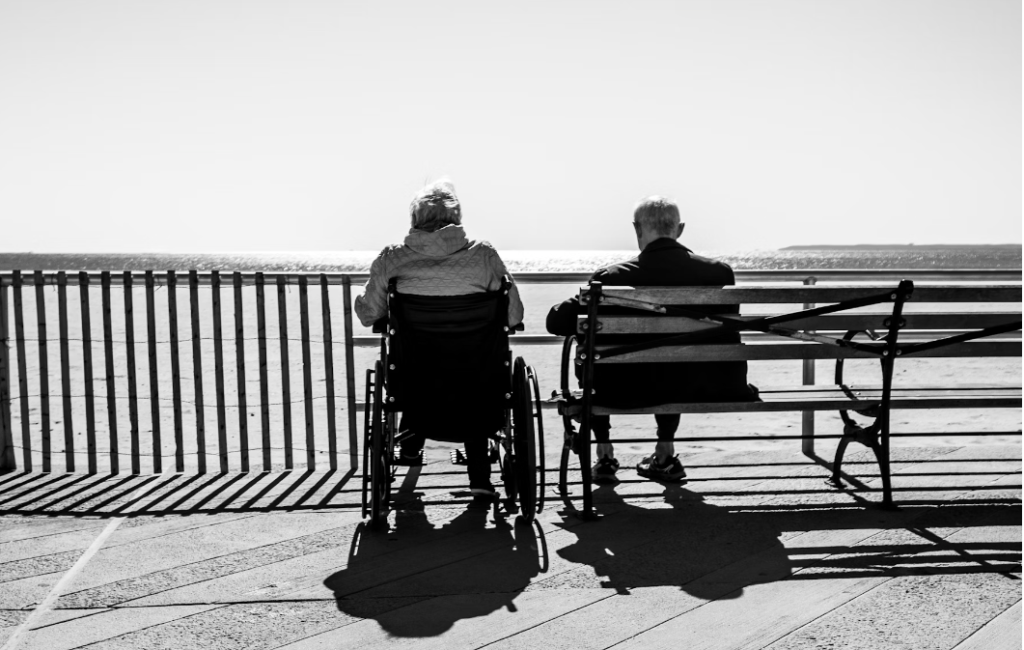10 Powerful Tips to Make Traveling with Elderly Relatives Easier and More Enjoyable

Traveling with elderly relatives can be one of the most rewarding experiences, allowing you to create special memories while exploring new destinations together. However, it requires careful planning to ensure the comfort and well-being of your senior family members. With the right preparation, you can make the trip enjoyable for everyone. Here are 10 essential tips for traveling with elderly relatives, designed to help you plan a stress-free, memorable vacation.
Tip 1: Choose Accommodations Wisely – Opt for Cruises Over Frequent Hotel Changes
One of the biggest challenges when traveling with seniors is managing their energy levels. Moving from hotel to hotel, navigating airports, or driving between locations can be physically demanding. Instead of a traditional trip with multiple hotel changes, consider a river cruise. A river cruise allows you to visit several destinations without the hassle of constant packing and unpacking. These cruises also offer a more relaxed pace, making it easier for elderly relatives to enjoy the experience without becoming overwhelmed by logistics.
Unlike larger ocean cruises, river cruises tend to be smaller, making it easier for elderly passengers to navigate the ship. Onboard, everything is within walking distance, reducing the amount of strain on seniors with mobility issues. The smooth pace of travel and the opportunity to enjoy scenic views from the comfort of the ship make river cruises an ideal option for seniors who want to explore multiple destinations at a leisurely pace.
Tip 2: Be Mindful of Cabin Location on Cruises
When booking your cruise, pay close attention to the cabin’s location. Accessibility is key, especially if your elderly relatives have difficulty walking long distances. Choose a cabin that’s close to an elevator, dining areas, or other common areas to minimize walking. Some ships have large, sprawling layouts, so it’s important to keep mobility in mind when booking.
If you’re traveling as a group, make sure all of your cabins are located on the same deck or at least within close proximity. Having your elderly relatives nearby will make it easier to assist them when needed. Additionally, be sure to ask the cruise line about special accommodations for guests with mobility challenges. Many cruise ships offer accessible cabins with wider doorways and grab bars in the bathrooms, making it easier for seniors to move around safely.
Tip 3: Choose Low-Impact Excursions
Excursions are one of the highlights of any cruise, but not all excursions are suitable for seniors. Some tours may involve walking over uneven terrain, navigating steep steps, or spending long periods standing, which can be exhausting for older travelers. When selecting excursions, look for those that are specifically designed for guests with mobility concerns. Many cruise lines provide detailed ratings for each excursion, indicating the level of physical activity required.
In addition to checking the activity rating online, it’s a good idea to call the cruise line directly and inquire about accessibility. Customer service can provide more information on which tours are suitable for seniors, including the availability of ramps, elevators, or other accommodations. Keep in mind that even “easy” excursions may still involve some physical effort, so it’s important to choose activities that your elderly relatives will comfortably enjoy.
Tip 4: Arrange Wheelchair Assistance at Airports
Airports can be overwhelming for anyone, but for elderly travelers, navigating a busy terminal can be particularly daunting. To make the airport experience smoother, arrange for wheelchair assistance well in advance. This service is typically available free of charge and can be requested when booking your flight. Having wheelchair assistance ensures that your elderly relatives can move through security checkpoints, gate areas, and baggage claim with ease.
When traveling internationally, wheelchair assistance can be even more important. Language barriers, unfamiliar airport layouts, and long terminal transfers can make it difficult for seniors to navigate on their own. By arranging assistance beforehand, you eliminate the stress of rushing between gates or standing in long lines. If your elderly relatives have mobility issues, wheelchair assistance is a must-have for a seamless travel experience.
Tip 5: Opt for Direct, Short Flights

When flying with elderly relatives, consider the length of the flight and the number of layovers. Long flights with multiple connections can be physically draining for seniors. Whenever possible, book direct flights to minimize travel time and avoid the hassle of rushing between connecting flights. If direct flights are not available, choose flights with longer layovers to allow for more time to rest between connections.
Additionally, book aisle seats for your elderly relatives. This makes it easier for them to get up and move around during the flight, reducing the risk of stiffness or discomfort from sitting in one position for an extended period. It also allows for easier access to the restroom if needed.
Tip 6: Consult Cruise Staff About Excursions
Even after choosing excursions that seem suitable for seniors, it’s important to speak with the cruise staff before departing for each tour. The level of difficulty can sometimes be misrepresented, and what may be labeled as “easy” could still involve more physical activity than expected. Cruise staff are knowledgeable about the excursions offered and can provide advice based on the specific needs of your elderly relatives.
By discussing the details with staff members, you can make more informed decisions and avoid any surprises during your shore excursions. It’s always better to err on the side of caution and choose activities that may be less physically demanding to ensure your loved ones enjoy themselves without feeling exhausted.
Tip 7: Invest in an Off-Road Wheelchair

If your elderly relatives don’t typically use a wheelchair, you might not think to bring one. However, when traveling to destinations with cobblestone streets, uneven sidewalks, or long walking distances, having an off-road or all-terrain wheelchair can make a significant difference. These wheelchairs are designed to handle rougher surfaces, making it easier to explore cities in Europe or other destinations where smooth paths are not always available.
Even if your elderly relatives prefer walking, having a wheelchair as a backup option can prevent fatigue and allow them to rest during longer outings. Europe, in particular, can be challenging to navigate for those with mobility issues, so being prepared with a sturdy wheelchair can save the day.
Tip 8: Set Realistic Expectations
One of the most important aspects of planning a trip with elderly relatives is setting realistic expectations. Before the trip, have a conversation with your loved ones about their physical limitations and what they hope to get out of the trip. It’s important for everyone to be on the same page about what is achievable. There may be times when elderly travelers need to sit out certain activities, and that’s perfectly okay.
For example, if an excursion involves climbing stairs or entering sites that are not wheelchair-accessible, your elderly relatives may prefer to relax at a nearby café or stay onboard while others explore. By managing expectations in advance, you can avoid frustration and ensure that everyone enjoys the trip at their own pace.
Tip 9: Schedule Plenty of Rest Days
It can be tempting to fill every day of your trip with sightseeing and activities, but for seniors, downtime is just as important as exploring. Be sure to build rest days or quiet afternoons into your itinerary. Cruises often offer onboard activities such as games, lectures, or entertainment that can be enjoyed at a leisurely pace. Plan to stay on the ship for a few afternoons and simply enjoy the scenery as you sail to your next destination.
Rest days not only give your elderly relatives time to recharge but also make the entire trip more enjoyable. A well-balanced itinerary with a mix of activity and relaxation is key to a successful vacation with seniors.
Tip 10: Avoid Traveling During the Summer
Hot weather can be especially hard on elderly travelers, as extreme temperatures can quickly drain energy and lead to discomfort. Whenever possible, plan your trip during cooler months, such as spring or fall, when the weather is more moderate. This not only ensures a more pleasant experience but also helps your elderly relatives conserve energy for sightseeing and other activities.
Summer travel may seem convenient due to school vacations, but the heat can pose health risks for older travelers, such as dehydration or heat exhaustion. Choosing a cooler time of year will make your trip much more comfortable and enjoyable for everyone involved.
Final Thoughts
Traveling with elderly relatives can be a deeply fulfilling experience, but it requires thoughtful planning to ensure their comfort and safety. From choosing the right accommodations to setting realistic expectations, these 10 tips will help you create a smooth, enjoyable vacation for all. Whether you’re cruising through Europe or exploring local destinations, your elderly loved ones can enjoy the journey just as much as you do with the right preparation.
The Trip Atelier takes the stress out of vacation planning. Schedule a consultation and start crafting a memorable vacation today.






